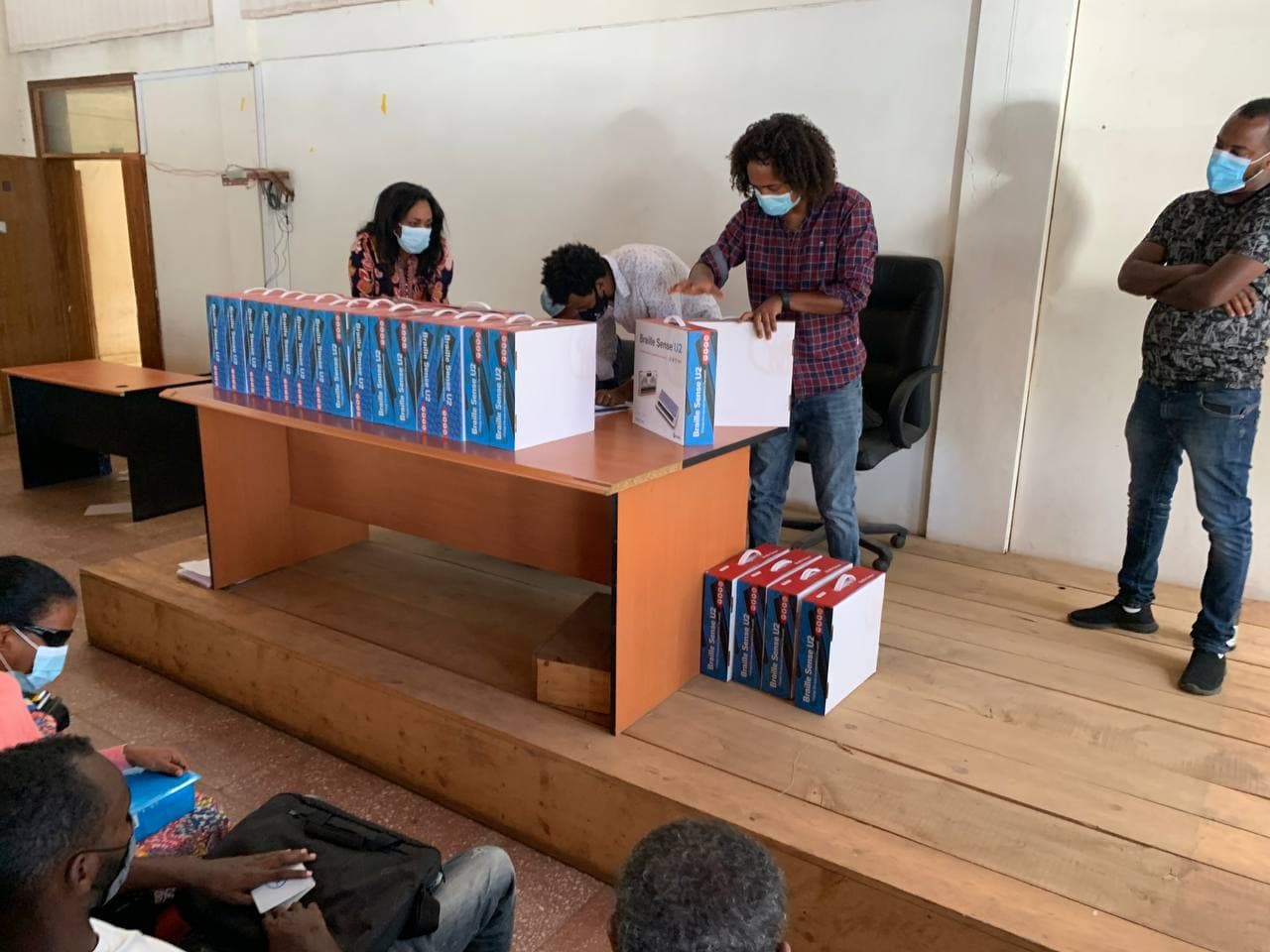Assistive Technology to Promote Inclusion in Ethiopia's Judiciary
28.03.2022
Ethiopia

Visually impaired people, as one category of people with disabilities, have internationally recognized fundamental rights to participate in socio-economic activities. These rights are also acknowledged by the Constitution of the Federal Democratic Republic of Ethiopia.
In Ethiopia, most visually impaired lawyers serve as public prosecutors, although there are judges, and public defense attorneys with the same disability. One of the best ways to create an accessible work environment for them is to provide equipment with assistive technology. Starting in May 2021, USAID-funded Feteh Activity delivered laptops with built-in text-to-speech software and headsets, as well as Braille display, to the judicial institutions – prosecutor’s offices, and courts, in both the Amhara and Oromia regions.
“It’s not being visually impaired that is the problem, but it is not accepting oneself. I made a choice to work hard towards my goal. While being a woman who is disabled, it has not been easy. But courageously, if you work hard without any excuses, not even the pandemic can block your path. And believe me, every one of us has the ability to achieve our dreams” Ms. Zelalem Tegeghe, Public Prosecutor in the Amhara Regional Supreme Court.
Feteh delivered several user training workshops this March to enable the visually impaired prosecutors and judges to apply assistive technology effectively in their daily work.